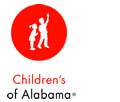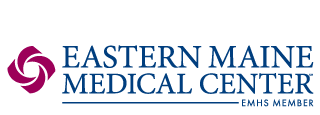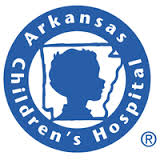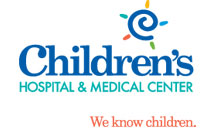Liposome-encapsulated Daunorubicin-Cytarabine, Fludarabine Phosphate, Cytarabine, and Filgrastim in Treating Younger Patients With Relapsed or Refractory Acute Myeloid Leukemia
| Status: | Completed |
|---|---|
| Conditions: | Blood Cancer, Blood Cancer, Hematology |
| Therapuetic Areas: | Hematology, Oncology |
| Healthy: | No |
| Age Range: | 1 - 21 |
| Updated: | 3/1/2019 |
| Start Date: | April 25, 2016 |
| End Date: | December 31, 2018 |
A Phase 1/2 Study of CPX-351 (NSC# 775341) Alone Followed by Fludarabine, Cytarabine, and G-CSF (FLAG) for Children With Relapsed Acute Myeloid Leukemia (AML)
This phase I/II trial studies the side effects and best dose of liposome-encapsulated
daunorubicin-cytarabine when given with fludarabine phosphate, cytarabine, and filgrastim and
to see how well they work in treating younger patients with acute myeloid leukemia that has
come back after treatment (relapsed) or is not responding to treatment (is refractory).
Liposome-encapsulated daunorubicin-cytarabine is made up of two chemotherapy drugs,
cytarabine and daunorubicin hydrochloride, and works to stop cancer cell growth by blocking
the cells from dividing. Drugs used in chemotherapy, such as fludarabine phosphate and
cytarabine, work in different ways to stop the growth of cancer cells, either by killing the
cells, by stopping them from dividing, or by stopping them from spreading. Filgrastim may
increase the production of blood cells and may help the immune system recover from the side
effects of chemotherapy. Giving liposome-encapsulated daunorubicin-cytarabine followed by
fludarabine phosphate, cytarabine, and filgrastim may be a better treatment for patients with
relapsed acute myeloid leukemia and may cause fewer side effects to the heart, a common
effect of other chemotherapy treatments for acute myeloid leukemia.
daunorubicin-cytarabine when given with fludarabine phosphate, cytarabine, and filgrastim and
to see how well they work in treating younger patients with acute myeloid leukemia that has
come back after treatment (relapsed) or is not responding to treatment (is refractory).
Liposome-encapsulated daunorubicin-cytarabine is made up of two chemotherapy drugs,
cytarabine and daunorubicin hydrochloride, and works to stop cancer cell growth by blocking
the cells from dividing. Drugs used in chemotherapy, such as fludarabine phosphate and
cytarabine, work in different ways to stop the growth of cancer cells, either by killing the
cells, by stopping them from dividing, or by stopping them from spreading. Filgrastim may
increase the production of blood cells and may help the immune system recover from the side
effects of chemotherapy. Giving liposome-encapsulated daunorubicin-cytarabine followed by
fludarabine phosphate, cytarabine, and filgrastim may be a better treatment for patients with
relapsed acute myeloid leukemia and may cause fewer side effects to the heart, a common
effect of other chemotherapy treatments for acute myeloid leukemia.
PRIMARY OBJECTIVES:
I. To determine a recommended phase 2 dose (RP2D) and the toxicities associated with
liposome-encapsulated daunorubicin-cytarabine (CPX-351) in pediatric and young adult patients
with relapsed/refractory acute myeloid leukemia (AML).
II. To estimate the response rate (complete remission [CR] plus complete remission with
partial platelet recovery [CRp]) after CPX-351 (cycle 1) followed by fludarabine phosphate,
cytarabine, and filgrastim (FLAG) (cycle 2) in children with AML in first relapse.
SECONDARY OBJECTIVES:
I. To estimate the response rate (CR + CRp + complete remission with incomplete blood count
recovery [CRi]) after one cycle of CPX-351.
II. To describe the pharmacokinetics of plasma cytarabine and daunorubicin after CPX-351
administration to pediatric and young adult patients with relapsed/refractory AML.
TERTIARY OBJECTIVES:
I. To describe the response in biomarkers of cardiac injury to a single cycle of CPX-351.
II. To explore the effect of CPX-351 on novel biochemical and imaging markers of
cardiotoxicity, including plasma micro ribonucleic acid (RNAs) (miRNA) and myocardial
deformation.
III. To explore the role of rare coding variants as risk factors for anthracycline-induced
cardiomyopathy.
OUTLINE:
COURSE 1: Patients receive cytarabine intrathecally (IT) on day 0 and at day 28-30 or up to 7
days prior to day 1 of course 2, and liposome-encapsulated daunorubicin-cytarabine
intravenously (IV) over 90 minutes on days 1, 3, and 5. Patients without evidence of central
nervous system (CNS) disease (CNS1) receive no further CNS-directed therapy in course 1.
Patients with < 5 white blood cells per microliter of blood with blast cells (CNS2) disease
may receive additional 4-6 doses of cytarabine IT twice weekly starting 48 hours after the
third dose of liposome-encapsulated daunorubicin-cytarabine until CNS is clear at the
discretion of the investigator. Patients meeting criteria for CR, CRp, and CRi may proceed to
course 2.
COURSE 2: Beginning 28 days later, patients receive filgrastim subcutaneously (SC) on days
1-5 and then on day 15 until blood count recovery, and fludarabine phosphate IV over 30
minutes and high-dose cytarabine IV over 1-3 hours once daily (QD) on days 1-5.
After completion of study treatment, patients are followed up periodically for 12 months, and
then yearly for 5 years.
I. To determine a recommended phase 2 dose (RP2D) and the toxicities associated with
liposome-encapsulated daunorubicin-cytarabine (CPX-351) in pediatric and young adult patients
with relapsed/refractory acute myeloid leukemia (AML).
II. To estimate the response rate (complete remission [CR] plus complete remission with
partial platelet recovery [CRp]) after CPX-351 (cycle 1) followed by fludarabine phosphate,
cytarabine, and filgrastim (FLAG) (cycle 2) in children with AML in first relapse.
SECONDARY OBJECTIVES:
I. To estimate the response rate (CR + CRp + complete remission with incomplete blood count
recovery [CRi]) after one cycle of CPX-351.
II. To describe the pharmacokinetics of plasma cytarabine and daunorubicin after CPX-351
administration to pediatric and young adult patients with relapsed/refractory AML.
TERTIARY OBJECTIVES:
I. To describe the response in biomarkers of cardiac injury to a single cycle of CPX-351.
II. To explore the effect of CPX-351 on novel biochemical and imaging markers of
cardiotoxicity, including plasma micro ribonucleic acid (RNAs) (miRNA) and myocardial
deformation.
III. To explore the role of rare coding variants as risk factors for anthracycline-induced
cardiomyopathy.
OUTLINE:
COURSE 1: Patients receive cytarabine intrathecally (IT) on day 0 and at day 28-30 or up to 7
days prior to day 1 of course 2, and liposome-encapsulated daunorubicin-cytarabine
intravenously (IV) over 90 minutes on days 1, 3, and 5. Patients without evidence of central
nervous system (CNS) disease (CNS1) receive no further CNS-directed therapy in course 1.
Patients with < 5 white blood cells per microliter of blood with blast cells (CNS2) disease
may receive additional 4-6 doses of cytarabine IT twice weekly starting 48 hours after the
third dose of liposome-encapsulated daunorubicin-cytarabine until CNS is clear at the
discretion of the investigator. Patients meeting criteria for CR, CRp, and CRi may proceed to
course 2.
COURSE 2: Beginning 28 days later, patients receive filgrastim subcutaneously (SC) on days
1-5 and then on day 15 until blood count recovery, and fludarabine phosphate IV over 30
minutes and high-dose cytarabine IV over 1-3 hours once daily (QD) on days 1-5.
After completion of study treatment, patients are followed up periodically for 12 months, and
then yearly for 5 years.
Inclusion Criteria:
- Patients must have had histologic verification of AML at original diagnosis
- Patient must have one of the following:
- Recurrent disease with >= 5% blasts in the bone marrow (M2/M3 bone marrow), with
or without extramedullary disease.
- Recurrent disease with an absolute blast count greater than 1,000 per microliter
in the peripheral blood with or without extramedullary disease
- To be eligible for the dose-finding phase: (the dose-finding phase completed in
12/2016)
- Relapsed patients
- Patients must be in first relapse, and
- Patients must not have received prior re-induction therapy
- Refractory patients
- Patients must not have received more than one attempt at remission
induction, which may consist of up to two different therapy courses;
Children Oncology Group (COG) AAML1031 de novo therapy including induction I
and induction II is an example
- Treatment-related AML (t-AML)
- Patients must be previously untreated for secondary AML
- To be eligible for the phase 2 efficacy phase:
- Relapse patients:
- Patients must be in first marrow relapse, and
- Patients must not have received prior re-induction therapy; donor lymphocyte
infusion (DLI) is considered a re-induction attempt
- Patients must have the status of CNS1 or CNS2 only, and no clinical signs or
neurologic symptoms suggestive of CNS leukemia, such as cranial palsy
- Patients must have a performance status corresponding to an Eastern Cooperative
Oncology Group (ECOG) scores of 0, 1 or 2; use Karnofsky for patients > 16 years of
age and Lansky for patients =< 16 years of age; Note: patients who are unable to walk
because of paralysis, but who are up in a wheelchair, will be considered ambulatory
for the purpose of assessing the performance score
- Patients must have recovered from the acute toxic effects of all prior chemotherapy,
immunotherapy, stem cell transplant or radiotherapy prior to entering this study; all
prior treatment-related toxicities must have resolved to =< grade 2 prior to
enrollment
- Myelosuppressive chemotherapy: must not have received myelosuppressive chemotherapy
within 3 weeks of entry onto this study (excluding hydroxyurea)
- Cytoreduction with hydroxyurea can be initiated and continued for up to 24 hours
prior to the start of CPX-351
- Biologic (anti-neoplastic agent): at least 7 days since the completion of therapy with
a biologic agent such as steroids, retinoids; Note: for agents that have known adverse
events occurring beyond 7 days after administration (i.e. monoclonal antibodies), this
period must be extended beyond the time during which acute adverse events are known to
occur
- Radiation therapy (RT): >= 2 weeks for local palliative RT (small port); >= 6 months
must have elapsed if prior craniospinal RT or if >= 50% radiation of pelvis; >= 6
weeks must have elapsed if other substantial bone marrow (BM) radiation; Note:
patients must have received =< than 13.6 Gray (Gy) prior radiation to the mediastinum
- Stem cell transplant (SCT): no evidence of active graft vs. host disease for at least
4 weeks; for allogeneic SCT patients, >= 3 months must have elapsed since transplant
- Must have received no more than 1 prior autologous or allogeneic stem cell
transplant.
- Patients must be off all systemic immunosuppressive therapy for at least 2 weeks,
excluding hydrocortisone for physiologic cortisol replacement
- Intrathecal cytotoxic therapy:
- No waiting period is required for patients having received intrathecal
cytarabine, methotrexate, and/or hydrocortisone
- At least 14 days must have elapsed since receiving liposomal cytarabine
(DepoCyte) by intrathecal injection
- Growth factors:
- Patients must not have received growth factors for 7 days prior to CPX-351
- Patients must not have received pegfilgrastim for 14 days prior to CPX-351
- Creatinine clearance or radioisotope glomerular filtration rate (GFR) >= 70
mL/min/1.73 m^2 or a serum creatinine based on age/gender as follows:
- Age 1 to < 2 years: maximum serum creatinine 0.6 mg/dL (males and females)
- Age 2 to < 6 years: maximum serum creatinine 0.8 mg/dL (males and females)
- Age 6 to < 10 years: maximum serum creatinine 1.0 mg/dL (males and females)
- Age 10 to < 13 years: maximum serum creatinine 1.2 mg/dL (males and females)
- Age 13 to < 16 years: maximum serum creatinine 1.5 mg/dL (males) and 1.4 mg/dL
(females)
- Age >= 16 years: maximum serum creatinine 1.7 mg/dL (males) and 1.4 mg/dL
(females)
- Direct bilirubin < 1.5 x upper limit of normal (ULN) for age and institution
- Serum glutamate pyruvate (SGPT) (alanine aminotransferase [ALT]) =< 3.0 x upper limit
of normal (ULN) for age and institution (unless it is related to leukemic involvement)
- Shortening fraction of >= 27% by echocardiogram, or
- Ejection fraction of >= 50% by radionuclide angiogram or echocardiogram
- Corrected QT (using Bazett's formula [QTcB]) interval < 500 msecs
- Patients with seizure disorder may be enrolled if on anticonvulsants and if seizures
are well controlled
- Central nervous system (CNS) toxicity =< grade 2
- Patients with a known history of human immunodeficiency virus (HIV) are eligible, if
they meet all of the following conditions:
- No history of HIV complications with the exception of cluster of differentiation
(CD)4 count < 200 cells/mm^3
- No antiretroviral therapy with overlapping toxicity such as myelosuppression
- HIV viral loads below the limit of detection
- No history of highly active antiretroviral therapy (HAART)-resistant HIV
- All patients and/or their parents or legal guardians must sign a written informed
consent
- All institutional, Food and Drug Administration (FDA), and National Cancer Institute
(NCI) requirements for human studies must be met
Exclusion Criteria:
- Patients who have received > 450 mg/m^2 daunorubicin equivalents; patients who relapse
after receiving AAML0531/AAML1031 therapy will be eligible for this study, provided
they have not received any additional anthracyclines; NOTE: for the purposes of
determining eligibility for this protocol, the following cardiotoxicity multipliers
will be used to determine daunorubicin equivalents:
- Doxorubicin (doxorubicin hydrochloride): 1
- Mitoxantrone: 3
- Idarubicin: 3
- Epirubicin: 0.5
- Patients who are currently receiving another investigational drug
- Patients receiving medications for treatment of left ventricular systolic dysfunction
- Patients with any of the following diagnoses:
- Acute promyelocytic leukemia (APL)
- Down syndrome
- Fanconi anemia, Kostmann syndrome, Shwachman syndrome or any other known bone
marrow failure syndrome
- Wilson's disease and any other disorder of copper metabolism
- Juvenile myelomonocytic leukemia (JMML)
- Patients with documented active, uncontrolled infection at the time of study entry
- Patients with known active hepatitis B virus (HBV) and hepatitis C virus (HCV)
infections
- Patients with prior allergy to daunorubicin and/or cytarabine
- Female patients who are pregnant are ineligible
- Lactating females are not eligible
- Female patients of childbearing potential are not eligible unless a negative pregnancy
test result has been obtained
- Sexually active patients of reproductive potential are not eligible unless they have
agreed to use an effective contraceptive method for the duration of their study
participation and for 6 months after the last dose of chemotherapy
We found this trial at
68
sites
3333 Burnet Avenue # Mlc3008
Cincinnati, Ohio 45229
Cincinnati, Ohio 45229
1-513-636-4200

Cincinnati Children's Hospital Medical Center Patients and families from across the region and around the...
Click here to add this to my saved trials
Children's Hospital of Alabama Children
Click here to add this to my saved trials
Roswell Park Cancer Institute Welcome to Roswell Park Cancer Institute (RPCI), America's first cancer center...
Click here to add this to my saved trials
1 South Prospect Street
Burlington, Vermont 05401
Burlington, Vermont 05401
802-656-8990
Click here to add this to my saved trials
Rainbow Babies and Children's Hospital UH Rainbow Babies & Children’s Hospital is a 244-bed, full-service...
Click here to add this to my saved trials
Nationwide Children's Hospital At Nationwide Children’s, we are creating the future of pediatric health care....
Click here to add this to my saved trials
City of Hope Comprehensive Cancer Center City of Hope is a leading research and treatment...
Click here to add this to my saved trials
Connecticut Children's Medical Center Connecticut Children’s Medical Center is a nationally recognized, 187-bed not-for-profit children’s...
Click here to add this to my saved trials
University of Mississippi Medical Center The University of Mississippi Medical Center, located in Jackson, is...
Click here to add this to my saved trials
Childrens Hospital Los Angeles Children's Hospital Los Angeles is a 501(c)(3) nonprofit hospital for pediatric...
Click here to add this to my saved trials
St. Jude Children's Research Hospital St. Jude is unlike any other pediatric treatment and research...
Click here to add this to my saved trials
601 Children's Lane
Norfolk, Virginia 23507
Norfolk, Virginia 23507
(757) 668-7000

Children's Hospital of The King's Daughters Children
Click here to add this to my saved trials
747 52nd St
Oakland, California 94609
Oakland, California 94609
(510) 428-3000

Children's Hospital and Research Center Oakland For nearly 100 years, Children's Hospital & Research Center...
Click here to add this to my saved trials
Children's Hospital of Orange County For more than 45 years, CHOC Children’s has been steadfastly...
Click here to add this to my saved trials
Nemours Children's Clinic - Pensacola Nemours Children’s Clinic, Pensacola serves children and families in northwest...
Click here to add this to my saved trials
Children's Hospital of Philadelphia Since its start in 1855 as the nation's first hospital devoted...
Click here to add this to my saved trials
4401 Penn Avenue
Pittsburgh, Pennsylvania 15224
Pittsburgh, Pennsylvania 15224
412-692-5325

Children's Hospital of Pittsburgh of UPMC UPMC is one of the leading nonprofit health systems...
Click here to add this to my saved trials
3181 Southwest Sam Jackson Park Road
Portland, Oregon 97239
Portland, Oregon 97239
503 494-8311

Oregon Health and Science University In 1887, the inaugural class of the University of Oregon...
Click here to add this to my saved trials
University of Rochester The University of Rochester is one of the country's top-tier research universities....
Click here to add this to my saved trials
Alfred I. duPont Hospital for Children Nemours began more than 70 years ago with the...
Click here to add this to my saved trials
Click here to add this to my saved trials
C S Mott Children's Hospital Behind the doors of C.S. Mott Children's Hospital there exist...
Click here to add this to my saved trials
Click here to add this to my saved trials
Click here to add this to my saved trials
Children's Hospital Colorado At Children's Hospital Colorado, we see more, treat more and heal more...
Click here to add this to my saved trials
401 North Broadway
Baltimore, Maryland 21287
Baltimore, Maryland 21287
410-955-5000

Johns Hopkins University-Sidney Kimmel Cancer Center The name Johns Hopkins has become synonymous with excellence...
Click here to add this to my saved trials
Eastern Maine Medical Center Located in Bangor, Eastern Maine Medical Center (EMMC) serves communities throughout...
Click here to add this to my saved trials
Massachusetts General Hospital Cancer Center An integral part of one of the world
Click here to add this to my saved trials
Dana-Farber Cancer Institute Since it’s founding in 1947, Dana-Farber has been committed to providing adults...
Click here to add this to my saved trials
Click here to add this to my saved trials
Dallas, Texas 75390
Principal Investigator: Theodore W. Laetsch
Phone: 214-648-7097
Click here to add this to my saved trials
Click here to add this to my saved trials
Click here to add this to my saved trials
1600 Southwest Archer Road
Gainesville, Florida 32610
Gainesville, Florida 32610
Click here to add this to my saved trials
Click here to add this to my saved trials
Riley Hospital for Children Riley Hospital for Children at IU Health is a place of...
Click here to add this to my saved trials
Click here to add this to my saved trials
Click here to add this to my saved trials
Click here to add this to my saved trials
Click here to add this to my saved trials
Arkansas Children's Hospital Arkansas Children's Hospital (ACH) is the only pediatric medical center in Arkansas...
Click here to add this to my saved trials
Loma Linda University Medical Center An outgrowth of the original Sanitarium on the hill in...
Click here to add this to my saved trials
Click here to add this to my saved trials
600 Highland Ave
Madison, Wisconsin 53792
Madison, Wisconsin 53792
(608) 263-6400

University of Wisconsin Hospital and Clinics UW Health strives to meet the health needs of...
Click here to add this to my saved trials
9000 W Wisconsin Ave #270
Milwaukee, Wisconsin 53226
Milwaukee, Wisconsin 53226
(414) 266-2000
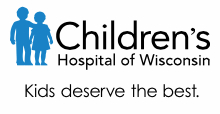
Children's Hospital of Wisconsin Nothing matters more than our children. At Children's Hospital of Wisconsin,...
Click here to add this to my saved trials
Click here to add this to my saved trials
Click here to add this to my saved trials
Click here to add this to my saved trials
Click here to add this to my saved trials
Click here to add this to my saved trials
940 NE 13th St
Oklahoma City, Oklahoma 73190
Oklahoma City, Oklahoma 73190
(405) 271-6458

University of Oklahoma Health Sciences Center The OU Health Sciences Center is composed of seven...
Click here to add this to my saved trials
Children's Hospital and Medical Center of Omaha Children's Hospital & Medical Center has a rich...
Click here to add this to my saved trials
Univ of Nebraska Med Ctr A vital enterprise in the nation’s heartland, the University of...
Click here to add this to my saved trials
Phoenix Children's Hospital Phoenix Children's Hospital has provided hope, healing, and the best healthcare for...
Click here to add this to my saved trials
Click here to add this to my saved trials
Click here to add this to my saved trials
Click here to add this to my saved trials
660 S Euclid Ave
Saint Louis, Missouri 63110
Saint Louis, Missouri 63110
(314) 362-5000

Washington University School of Medicine Washington University Physicians is the clinical practice of the School...
Click here to add this to my saved trials
Click here to add this to my saved trials
Click here to add this to my saved trials
Click here to add this to my saved trials
Click here to add this to my saved trials
Click here to add this to my saved trials
Seattle Children's Hospital Seattle Children’s Hospital specializes in meeting the unique physical, emotional and developmental...
Click here to add this to my saved trials
101 W 8th Ave
Spokane, Washington 99204
Spokane, Washington 99204
(509) 474-3131

Providence Sacred Heart Medical Center & Children's Hospital When Mother Joseph and the Sisters of...
Click here to add this to my saved trials
Click here to add this to my saved trials
111 Michigan Ave NW
Washington, District of Columbia
Washington, District of Columbia
(202) 476-5000

Childrens National Medical Center As the nation’s children’s hospital, the mission of Children’s National Medical...
Click here to add this to my saved trials
Click here to add this to my saved trials
